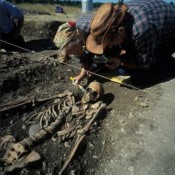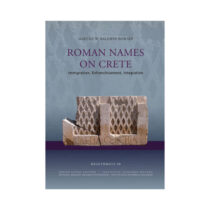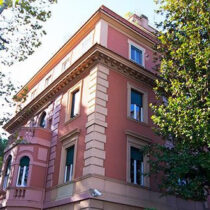Papers are invited for the conference ‘Citizenship and foreigners in Mediterranean societies from antiquity to today’ which will take place at Universidade Federal de Minas Gerais (UFMG) in Belo Horizonte, Brazil, 7-11 October 2024.
XI Symposium Reading, Watching, and Listening to the Past Citizenship and foreigners in Mediterranean societies from antiquity to today / Cidadania e estrangeiros nas sociedades mediterrâneas da Antiguidade até hoje
Mobility, migration, and the nature of citizenship have become popular fields of scholarly and political debate in the last years, not only in contemporary societies but also in antiquity (on the latter, see most recently, Filonik J., Plastow, C. & Zelnick-Abramovitz, R. (eds.) (2023), Citizenship in Antiquity: Civic Communities in the Ancient Mediterranean, London and New York). It has been noted that citizenship is much more than a static concept comprising a set of rights, duties, and obligations legally defined and enjoyed by a delimited group of individuals; citizenship is also ‘performative’ (Isin, E.F. (2017) ‘Performative citizenship’, in A. Shachar, R. Bauböck, I. Bloemraad & M. Vink (eds.), The Oxford handbook of citizenship: 500– 523, Oxford; Duplouy, A. (2023) in Filonik et al.): it is about social practices and interactions, norms, expectations, and codes of behaviour that demonstrate through speech and action what it means to be a citizen (Neveu, C. (2023) in Filonik et al.). Moreover, citizenship is not shaped exclusively through interaction between the state and its citizens or among the citizen group, but is also informed by contact with foreigners, visitors as well as permanent residents, by travelling and settling abroad, and by ‘interstate’ political, social, and intellectual movements. This conference will focus on citizenship in Mediterranean societies, mostly ancient but also contemporary, and will seek to explore the ways in which contact with free (freeborn as well as manumitted) foreigners may have shaped each time notions of citizenship and civic identity both formally (rights and obligations) and informally (codes of behaviour, everyday life).
The conference will gather a diverse group of international scholars and invite them to investigate the impact of free foreigners on notions of citizenship, both in theory and in practice, in Mediterranean societies and across time through the examination of literary, epigraphical, and material evidence. We are particularly interested in the following themes:
-Cases where partial civic rights and obligations are passed on to foreigners
-Negotiations of prestige between citizens and foreigners in formal and informal spaces and their impact on notions of citizenship and civic identity
-Repatriation of citizens (foreign residents, soldiers, captives, exiles, returning refugees) and the impact of living abroad on one’s citizenship and civic community at home
-Citizenship as a privilege that fosters inclusion vs. forced citizenship as a means of conquest
-Manumission and citizenship
-The position at home of citizens who prioritised reciprocal bonds (political, financial, marital) with states/power structures other than their own (given that good citizenship is based, ideally, on bonds of reciprocity between the citizen and their community)
-The rhetoric of the outcast in public discourse (e.g., ancient oratory and contemporary social media) and how to identify contested defining aspects of citizenship through the examination of such argumentation
-Monuments and places as metonyms of citizenship and civic identity
-Liminal spaces in the Mediterranean: refugee camps in Greek islands and the interaction between foreigners and locals; material evidence from refugee camps and what it may reveal about community life and civic identity of people on the move
Confirmed invited speakers:
Antony AUGOUSTAKIS (University of Illinois, Urbana-Champaign)
Carla M. DAMIÃO (Universidade Federal de Goiás)
Christos KREMMYDAS (Royal Holloway, University of London)
Emiliano BUIS (Universidad de Buenos Aires)
Fábio Augusto M. SOARES (Universidade Federal de Santa Catarina)
Fábio FORTES (Universidade Federal de Juiz de Fora)
Fábio V. CERQUEIRA (Universidade Federal de Pelotas)
Igor B. CARDOSO (Universidade Federal de Minas Gerais)
Jacyntho J.L. BRANDÃO (Universidade Federal de Minas Gerais)
Karine SALGADO (Universidade Federal de Minas Gerais)
Lorena L. da COSTA (Universidade Federal do Rio de Janeiro)
Luis Carlos VILLALTA (Universidade Federal de Minas Gerais)
Maicon R. ENGLER (Universidade Federal do Paraná)
Maria Cecilia de M. N. COELHO (Universidade Federal de Minas Gerais)
Myrto ALOUMPI (Universidade Federal de Minas Gerais)
Olimar FLORES-JUNIOR (Universidade Federal de Minas Gerais)
Priscilla G. LEITE (Universidade Federal da Paraíba)
Sandra L.R. DA ROCHA (Universidade de Brasília)
Stefania GIOMBINI (Universitat Autònoma de Barcelona)
Thais ROCHA (Universidade Federal de Minas Gerais)
Teodoro R. ASSUNÇÃO (Universidade Federal de Minas Gerais)
Ticiano C. E. LACERDA (Universidade Federal do Rio de Janeiro)
The conference will take place in person in Belo Horizonte, capital of the state of Minas Gerais, Brazil.
Proposals for papers in English, Portuguese, Italian, Spanish, and French of no more than 20 minutes in length could focus on one or more of the suggested themes. Proposals on other themes relevant to the topic are also invited. Abstracts (200 words max.), including University affiliation, should be submitted via Google Forms. Those interested in sending a proposal should be PhD candidates or PhD holders. Early-career scholars (with PhD) are particularly encouraged to apply.
The deadline for proposals is 15 August 2024 and notification letters of acceptance will be sent on 20 August 2024.
We will soon launch the website of the Symposium. For any information, including travelling to Brazil, feel free to contact the organisers: [email protected].
The previous ten editions of the Symposium can be accessed here.
Organisers:
Fábio Fortes (Classics/Philosophy- Universidade Federal de Juiz de Fora/UFJF)
Maria Cecilia de M.N. Coelho (Philosophy- UFMG)
Myrto Aloumpi (Post-doctoral Research Fellow in Philosophy – UFMG, CAPES-PRINT/ Research Associate, Centre for Oratory and Rhetoric – RHUL/ Post-doctoral Research Fellow in Classical Philology – University of Crete)
Teodoro Assunção (Classics-Núcleo de Estudos Antigos e Medievais -FALE-UFMG)





